Abstract
A study was carried out in the Kingdom of Tonga, an area of hyperendemic Bancroftian filariasis, to determine whether correlations could be made between microfilaraemia, as diagnosed by membrane filter concentration, and immunological (skin test, immunoglobulin levels) or clinical findings. There was no relationship between the presence or degree of microfilaraemia and any clinical manifestation or skin test reaction. The skin test positivity rate for microfilaraemic and amicrofilaraemic individuals was approximately the same for all age groups. Among those aged 0 to 4 years, 48% of microfilaria positives were negative in the skin test. The highest average IgG and IgE levels were found in the groups with the highest microfilarial densities, i.e., in children with a history of fever and in adults with a history of lymphangitis/lymphadenitis. Over a period of a year, the microfilarial density changed significantly in 18 (34%) of 53 adults.
Full text
PDF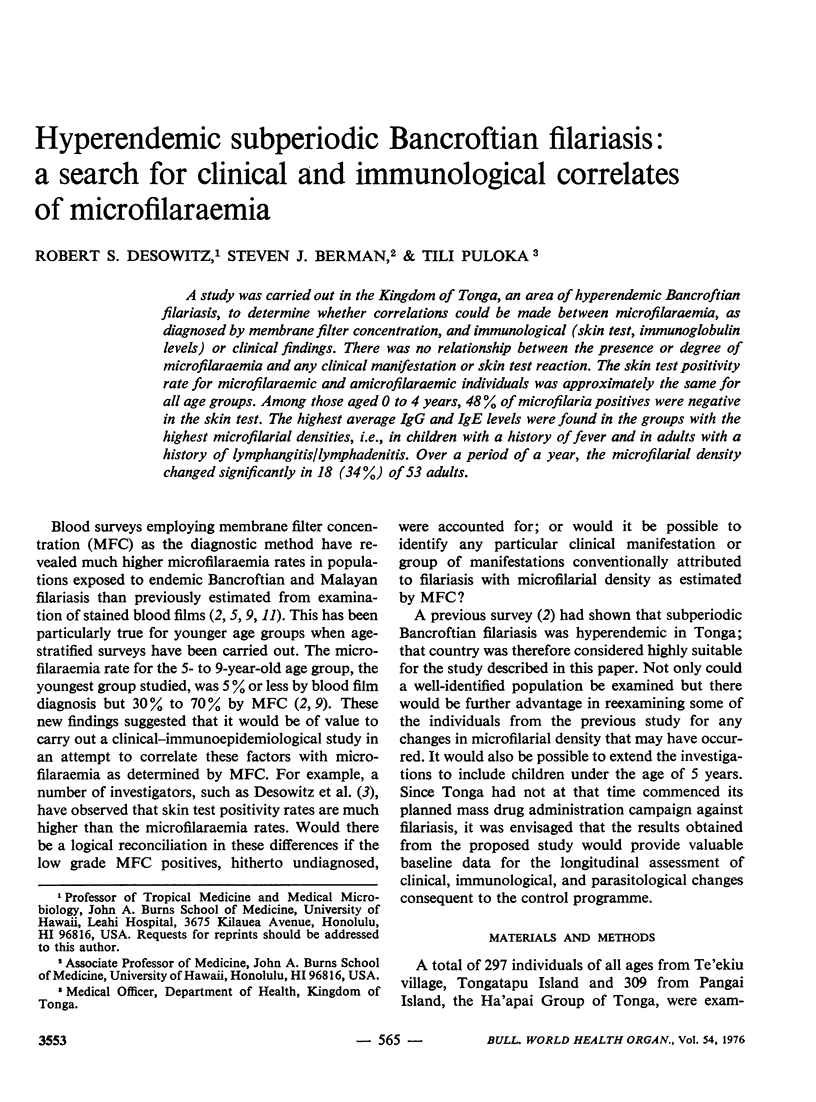
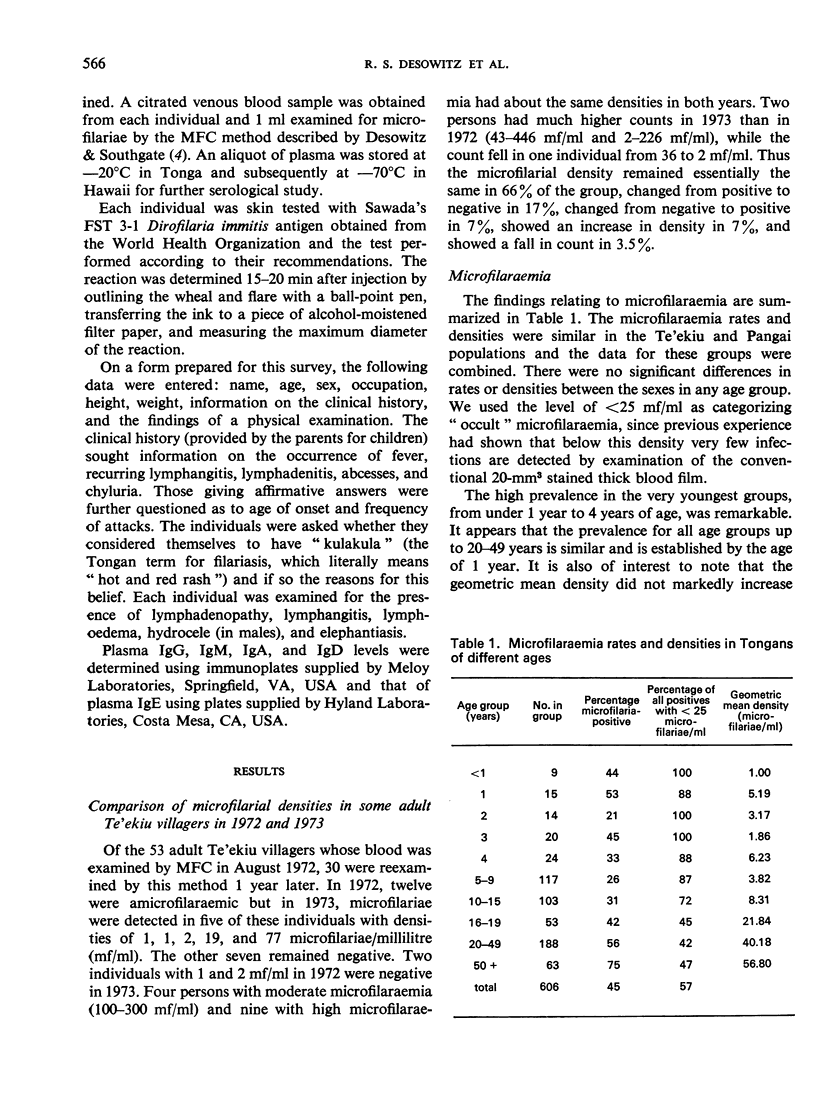
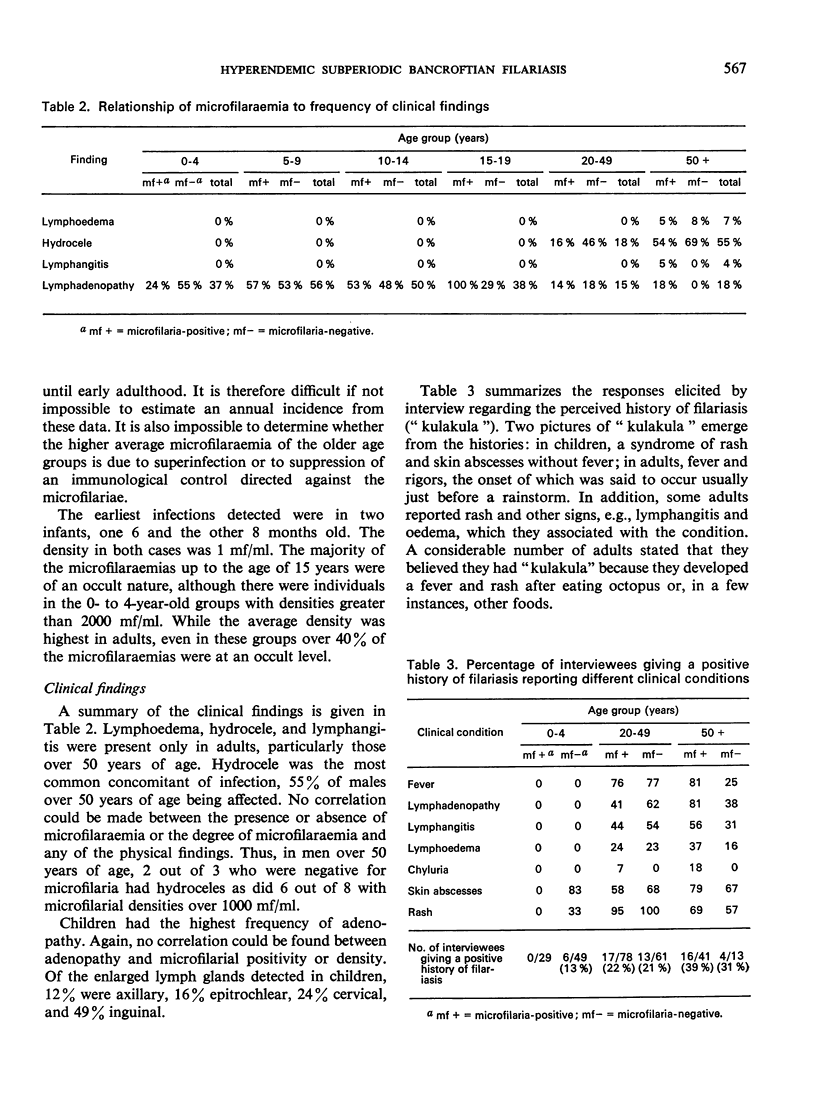
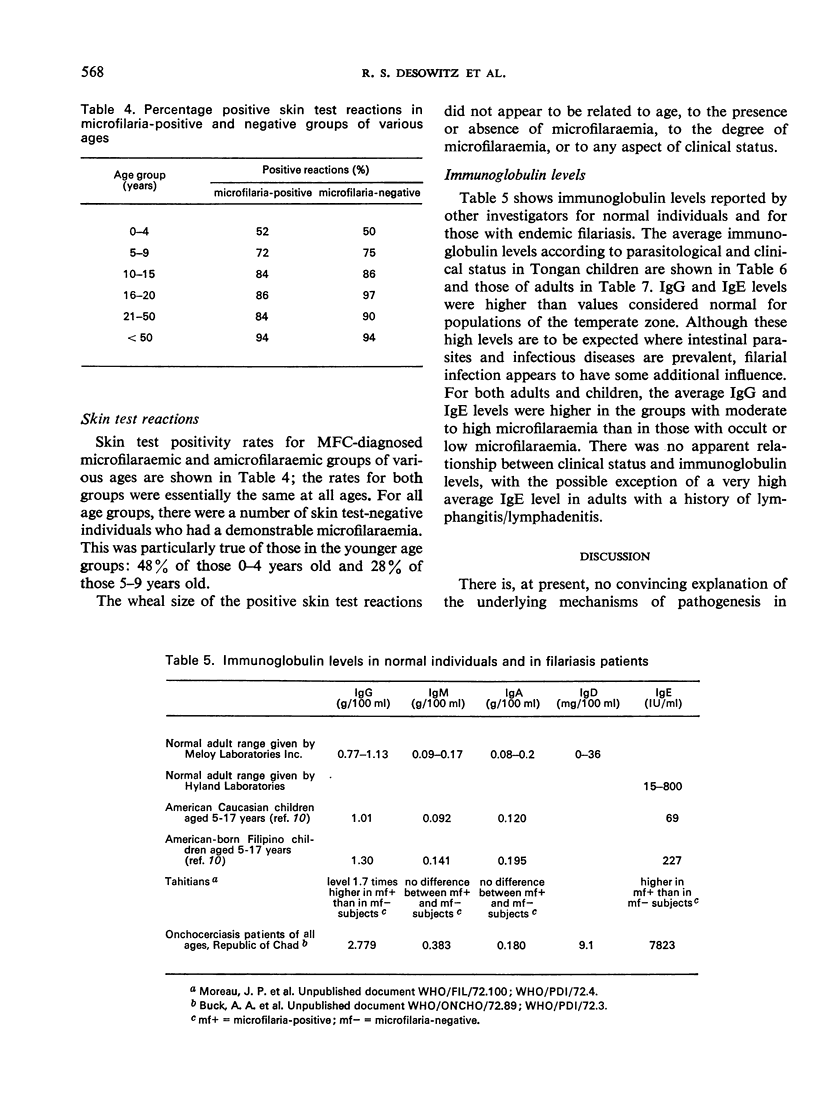
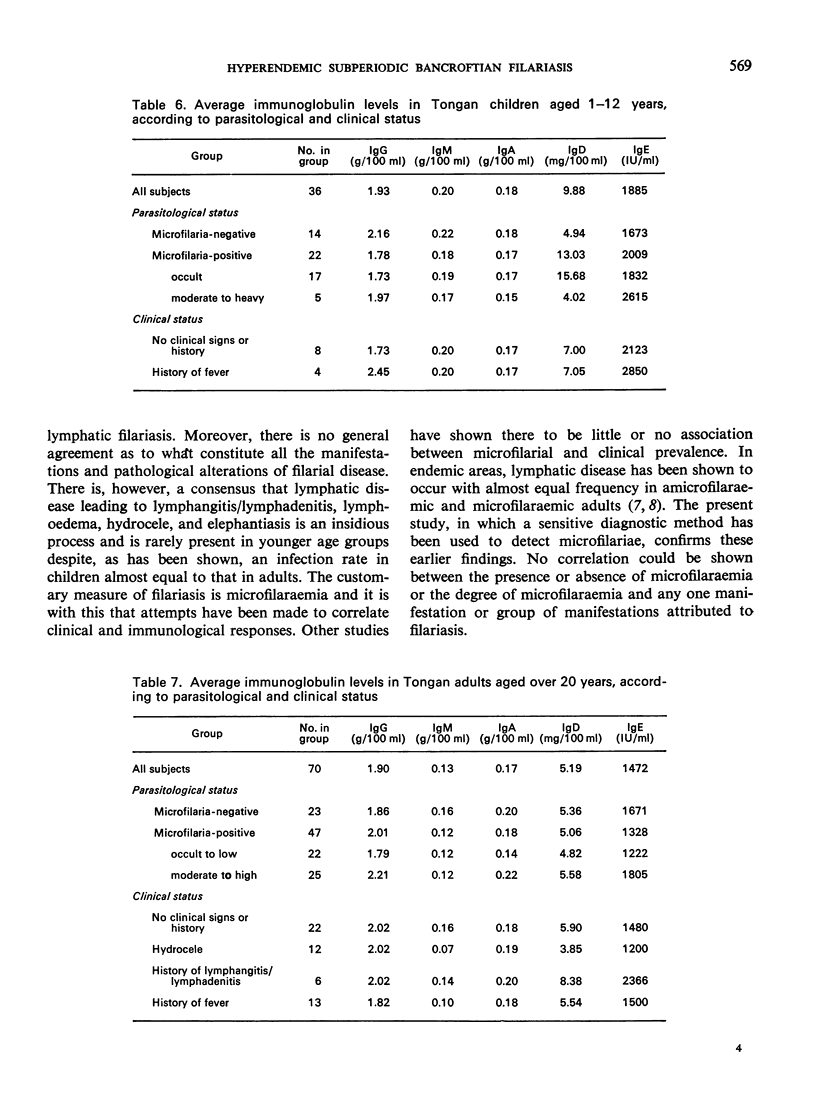
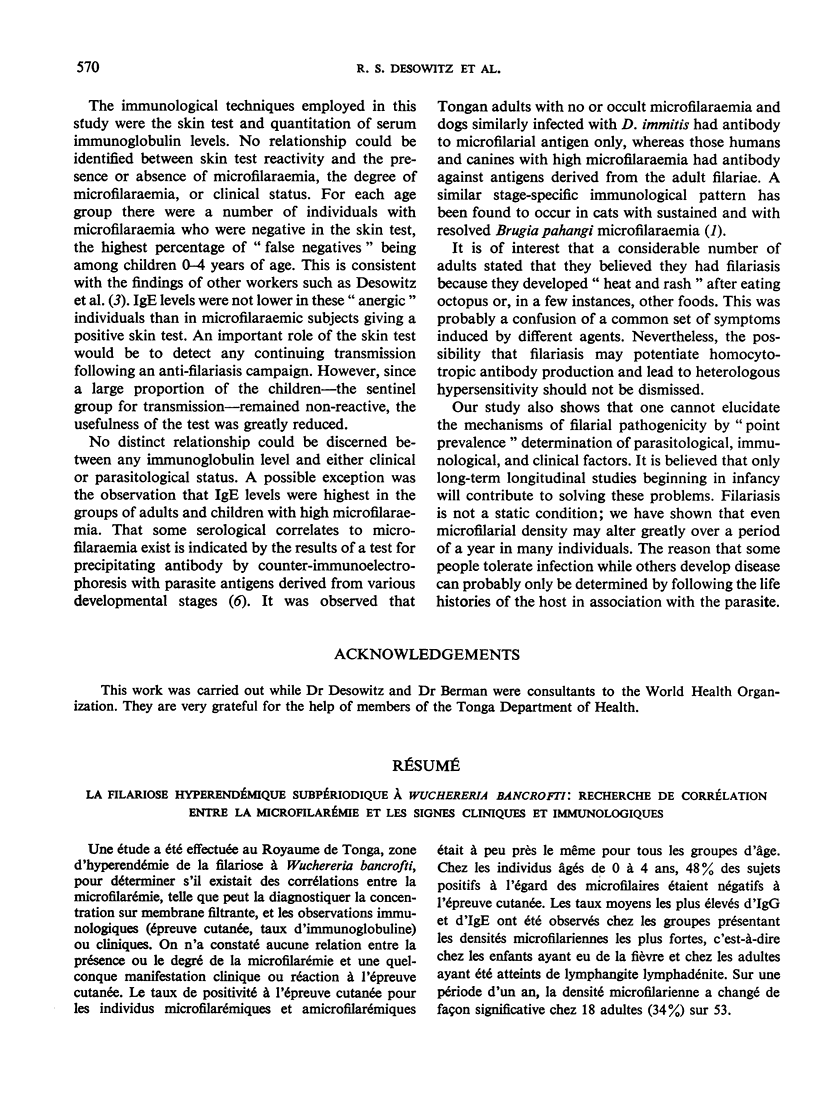
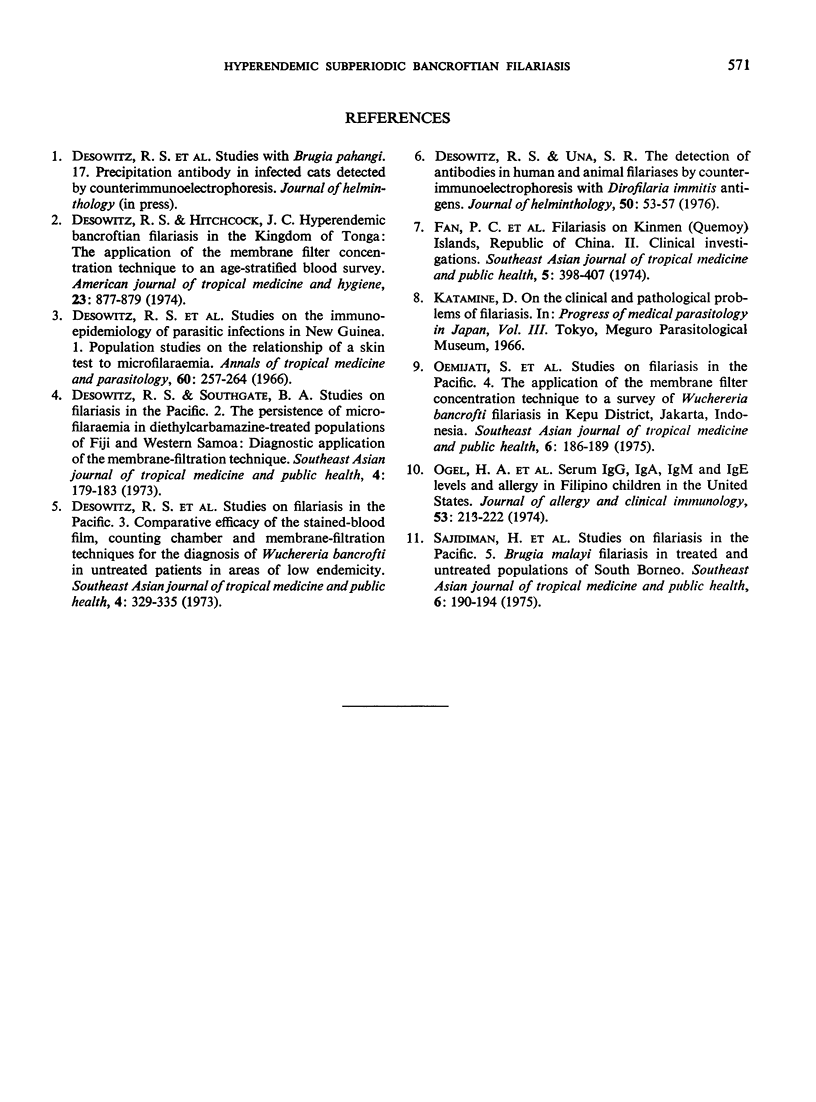
Selected References
These references are in PubMed. This may not be the complete list of references from this article.
- Desowitz R. S., Hitchcock J. C. Hyperendemic bancroftian filariasis in the Kingdom of Tonga: the application of the membrane filter concentration technique to an age-stratified blood survey. Am J Trop Med Hyg. 1974 Sep;23(5):877–879. doi: 10.4269/ajtmh.1974.23.877. [DOI] [PubMed] [Google Scholar]
- Desowitz R. S., Saave J. J., Sawada T. Studies on the immuno-epidemiology of parasitic infections in New Guinea. I. Population studies on the relationship of a skin test to microfilaraemia. Ann Trop Med Parasitol. 1966 Sep;60(3):257–264. doi: 10.1080/00034983.1966.11686414. [DOI] [PubMed] [Google Scholar]
- Desowitz R. S., Southgate B. A. Studies of filariasis in the Pacific. 2. The persistence of microfilaraemia in diethylcarbamazine treated populations of Fiji and Western Samoa: diagnostic application of the membrane-filtration technique. Southeast Asian J Trop Med Public Health. 1973 Jun;4(2):179–183. [PubMed] [Google Scholar]
- Desowitz R. S., Una S. R. The detection of antibodies in human and animal filariases by counterimmunoelectrophoresis with Dirofilaria immitis antigens. J Helminthol. 1976 Mar;50(1):53–57. doi: 10.1017/s0022149x00028856. [DOI] [PubMed] [Google Scholar]
- Fan P. C., Wang Y. C., Liu J. C., Hsu J. Filariasis on Kinmen (Quemoy) Islands, Republic of China. II. Clinical investigations. Southeast Asian J Trop Med Public Health. 1974 Sep;5(3):398–407. [PubMed] [Google Scholar]
- Oemijati S., Desowitz R. S., Partono F., Pant C. P., Mechfudin H., Sajidiman H. Studies on filariasis in the Pacific. 4. The application of the membrane filter concentration technique to a survey of Wuchereria bancrofti filariasis in Kepu district, Jakarta, Indonesia. Southeast Asian J Trop Med Public Health. 1975 Jun;6(2):186–189. [PubMed] [Google Scholar]
- Sajidiman H., Desowitz R. S., Darwis F. Studies on filariasis in the Pacific. 5. Brugia malayi filariasis in treated and untreated populations of South Borneo. Southeast Asian J Trop Med Public Health. 1975 Jun;6(2):190–194. [PubMed] [Google Scholar]


